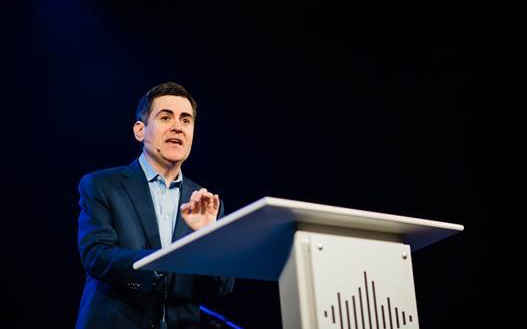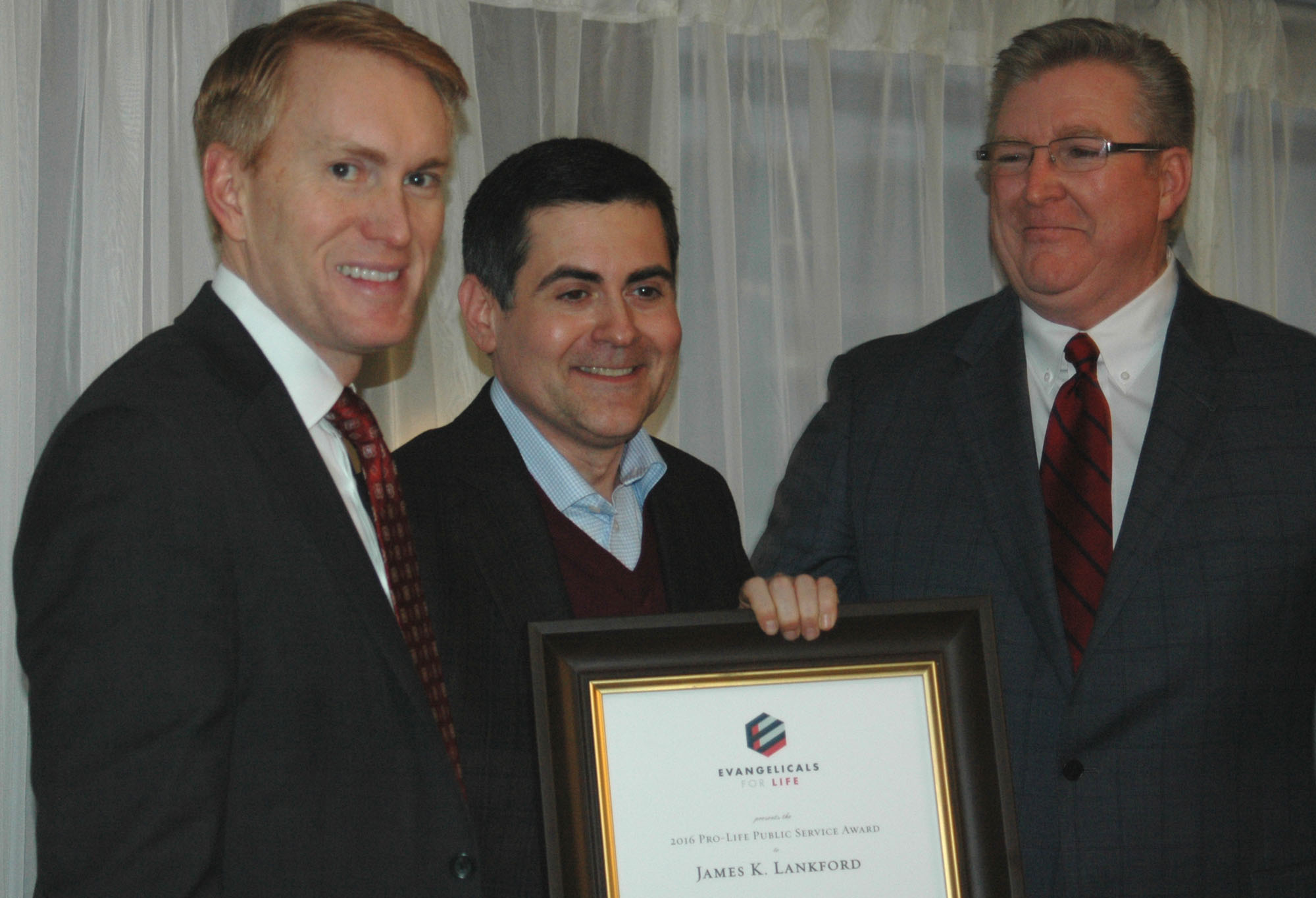
EDITOR’S NOTE: Sunday, Jan. 20, is the Southern Baptist Convention’s Sanctity of Human Life Sunday.
VIENNA, Va. (BP)– Human dignity and Gospel mission should characterize the Christian voice at a time when people are treated like machines, Southern Baptist ethicist Russell Moore said at Evangelicals for Life Thursday (Jan. 17).
 Moore, president of the Ethics & Religious Liberty Commission, opened the second day of the annual conference sponsored by the ERLC. The two-day event at McLean Bible Church in Vienna, Va., a suburb of Washington, D.C., continued with a full day of addresses, panel discussions and breakout sessions on such topics as abortion, adoption, disability, racial unity, immigration, Christian persecution and criminal justice reform.
Moore, president of the Ethics & Religious Liberty Commission, opened the second day of the annual conference sponsored by the ERLC. The two-day event at McLean Bible Church in Vienna, Va., a suburb of Washington, D.C., continued with a full day of addresses, panel discussions and breakout sessions on such topics as abortion, adoption, disability, racial unity, immigration, Christian persecution and criminal justice reform.
Many EFL attendees planned to participate in the annual March for Life Friday (Jan. 18) on the National Mall.
Moore told the audience, “We march for life, but we march beyond that to eternal life.”
Jesus demonstrated truths about the dignity of human beings and the power of the Gospel in Luke 18:31-19:10, which describes His encounters with two outcasts in the region of Jericho — a blind man and the tax collector Zacchaeus, Moore said.
The blind man was dependent and unproductive, he said.
“When usefulness is the definition of whether or not one is worth something, then we have turned human beings into machines,” Moore said. “And when one stops being useful or is never considered to be useful in the first place, those people are discarded even as we would discard an outdated technology.”
The blind man, however, cried out to Jesus, calling Him Son of David — “language that everyone would have understood refers to the king that God is going to send to deliver His people,” Moore said. In so doing, the blind man was “able to see what the disciples of Jesus themselves were not able to see,” he said. The disciples did not comprehend what would happen to Him in Jerusalem, though He had just told them.
The crowd sought to silence him “because he’s a problem, he’s a burden,” Moore said. “[T]o silence him would be to make him imperceptible.
“[T]hat’s exactly what takes place in our own society when it comes to the people who are so vulnerable that we don’t want to recognize that they’re there,” he told the audience. To the unborn, immigrants, refugees, elderly and children in foster care, people can say, “We want to silence you,” Moore said.
Jesus, however, “sees beyond that social pressure; He sees beyond the identity politics,” Moore said. “And He sees the person, and He sees this person not as a thing, not as a machine. He sees him as someone created in the image of the God who is Lord over all things.
“He sees him and He reflects to him the love and the mercy of the Gospel and of God.”
With Zacchaeus, Jesus “again defies all of the social pressure around Him,” this time by inviting Himself to the home of a despised tax collector who had used his power to extort money from people, Moore said.
Jesus fully knew controversy would break out because He was calling tax collectors to repentance and “willing to be in relationship with people He is calling to repentance,” Moore told the audience. Jesus is showing “God is not shocked by this sin, and God does not leave you in that sin,” he said.
Christ is calling Christians to live in the same way, he said. “We have to speak in a way consistent with the Gospel so that we’re speaking a word of justice. God is just. God does not ignore what happens to the cries of the poor and the vulnerable and marginalized and the unborn and the elderly and the stranger.”
Followers of Jesus must hear women who are in crisis pregnancies and say to them, “God hears you, and we’re here with you,” Moore said. Christians also are to “hear the voices of unborn children who have no functioning vocal cords, who can’t speak for themselves, to say, ‘These lives are not inconveniences. These lives are children loved by God.'”
In addition, Christians should respond to the voices of children in foster care, refugees suffering persecution, and the elderly in nursing homes or their own homes, he said.
God “hears oppression, and God will bring to judgment the oppression of the weak,” Moore told attendees. That is not the only word, however, he said. Jesus also says, “Come to Me,” in a word of invitation to both the oppressed and the oppressor, he said.
Jesus is saying, “Come to Me through the cross of Christ where the judgment of God has already fallen and where the love of God is seen…,” Moore said.
“In an age of machines,” he said, “we have to be the people who are able to speak with confidence to those who are in power, ‘There is a God, and He sees you,’ and with mercy to those who are weak and forgotten … to say, ‘Jesus loves you.'”




















